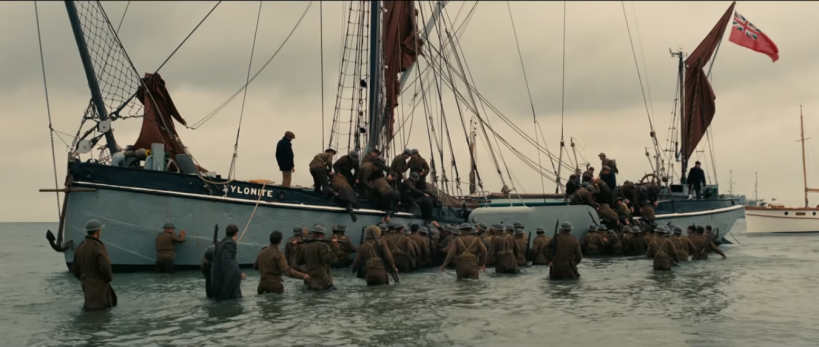We did the Nazis to death at school. I was actually relieved to move away from them and get to the Russians in my final year – though that meant even more death – but you can’t do anything about European history in the 20th century without bumping into the Germans.
So I don’t feel the need to read or watch much about the Second World War, and with the anniversary of Paaschendaele this year (today, actually), and my American Civil War reading, what need is there for more tales of horror?
However, it is nearly impossible to decide which bits of the past you might want to momentarily ignore, and when. Both my parents have been reading about incredible women in the Second World War: Pauline Gower, a pilot who got equal pay for male and female pilots, and was in charge of the women who flew out to repair planes or to bring planes home; and Germaine Tillion, a French intellectual who was part of the French resistance, spent three years in a concentration camp, but composed an operetta to keep up morale. She wouldn’t let anyone perform it after the war for a long time, wanting to remind people that the camps were about suffering, not comic music, but there was a performance in Paris near her 100th birthday, and as she could not physically attend, the cast came to her home to perform for her.
Hearing tales of bravery such as these, bravery that is, in some ways, almost impossible to imagine, had me digging out the 1942 war comedy classic, To Be or Not to Be. The film was made by Ernst Lubitsch, a German Jew who had come to Hollywood in 1922; many of the actors are European Jewish; and it is simultaneously incredibly touching and absolutely hilarious. It’s a different kind of heroism perhaps, but still heroic to have the very people Hitler was hunting down, both make outrageous fun of the Nazis, and articulate some of their own pain – the repeated Shylock monologue from Merchant of Venice has never been so appropriate.

So, in a weird way, it made sense that this weekend I would go and see Dunkirk. I don’t quite know how to write about it, because it’s unlike most films I’ve ever seen. Around six men fall down dead in the opening two minutes, with little blood and no lingering shot. The horror of the film is not in broken bodies, or Nazi cruelty – it’s the race to survive, while death flies overhead. The camera follows the soldiers’ vision by not wasting any time focusing on the disfigured dead, because the camera, the soldiers, have to move forward to survive, or to have a better chance of staying alive. There is chaos on the beaches, panic in the water, and the ones who make it to some sort of ‘dry land’ – which sometimes has to be a boat or a plane – those men are tense, shaking, eyes open and darting to see where the next threat is coming from.
This isn’t a film about the unlikely friendships forged in war or supreme noble sacrifice – the French aren’t allowed on British ships at the beginning of the evacuation – as accompanied by swelling cords to squeeze tears out of us. Christopher Nolan’s type of war is ugly, terrifying, and lonely, despite the large crowds; and the hand that reaches out in rescue is not necessarily a guarantee for getting home.

As for the music, Hans Zimmer is remarkably understated compared with previous work, with most of the soundtrack indistinguishable from the action; there are ticking time bombs, noises that could be an alarm, or machines droning, and it is mostly there to raise the hair on your arms in nervous apprehension, rather than make you cry. The only exception is when he borrows some Elgar, but since that is for one of the only hopeful minutes in the film, I’ll allow it.
There are brave and incredible acts, especially from the pilots (Tom Hardy’s eyes alone should be nominated for an Oscar) and moments of tender kindness to provide some relief beside the trauma and confusion. One of the most striking images of the film sees Cillian Murphy’s soldier adrift on a wreckage, alone in the grey ocean, when Mark Rylance’s civilian boat spots him. There is no backstory, and luckily no clumsy dialogue, to point out to us that Murphy is obviously the only survivor of an attack. Will he stay there to die? Shell-shocked and silent, he hesitates when the rope is thrown out to him, before diving into the water to be saved.

I recommend going to see it. I did not leave the cinema feeling uplifted by ‘plucky British blitz spirit’, like in Their Finest, and I don’t think it was Nolan’s intention that we do. Instead I felt bewildered and heavy-hearted that our island, brave but also vulnerable, chose to cut ourselves adrift from Europe, when it is the ties that bind us which prevent horrors like this from happening.
Image credits: YouTube via zimulatorz; Warner Bros. Pictures
